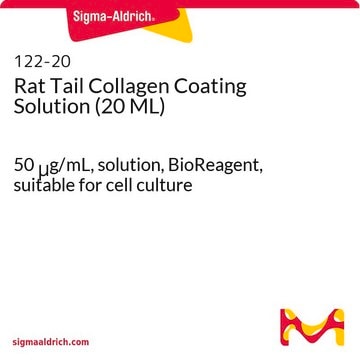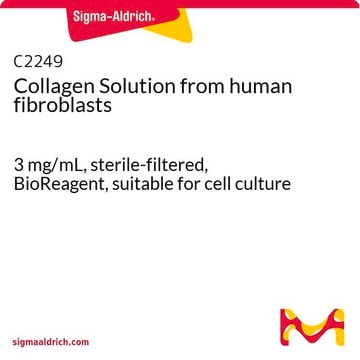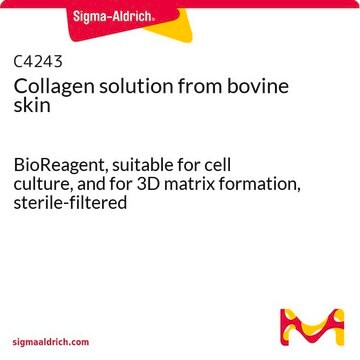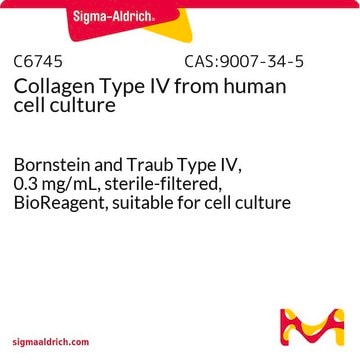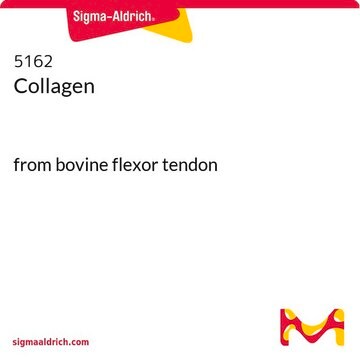Recommended Products
General description
Application
Add Attachment Factor Solution to the flask and rock the flask gently to distribute the solution evenly to cover the whole culture surface. Coat the culture ware surface for 30 minutes at 37°C or 2 hours or overnight at room temperature. Remove Attachment Factor Solution by aspiration in a sterile hood. The coated flask can be used immediately or store at 4°C for up to 2 weeks.
Biochem/physiol Actions
Storage Class
12 - Non Combustible Liquids
wgk_germany
nwg
flash_point_f
Not applicable
flash_point_c
Not applicable
Choose from one of the most recent versions:
Certificates of Analysis (COA)
It looks like we've run into a problem, but you can still download Certificates of Analysis from our Documents section.
If you need assistance, please contact Customer Support.
Already Own This Product?
Find documentation for the products that you have recently purchased in the Document Library.
Customers Also Viewed
Protocols
Technical information for working with human follicle dermal papilla cells including thawing, subculturing and cryopreservation.
Technical information for working with human skeletal muscle cells including thawing, subculturing and cryopreservation
Our team of scientists has experience in all areas of research including Life Science, Material Science, Chemical Synthesis, Chromatography, Analytical and many others.
Contact Technical Service
